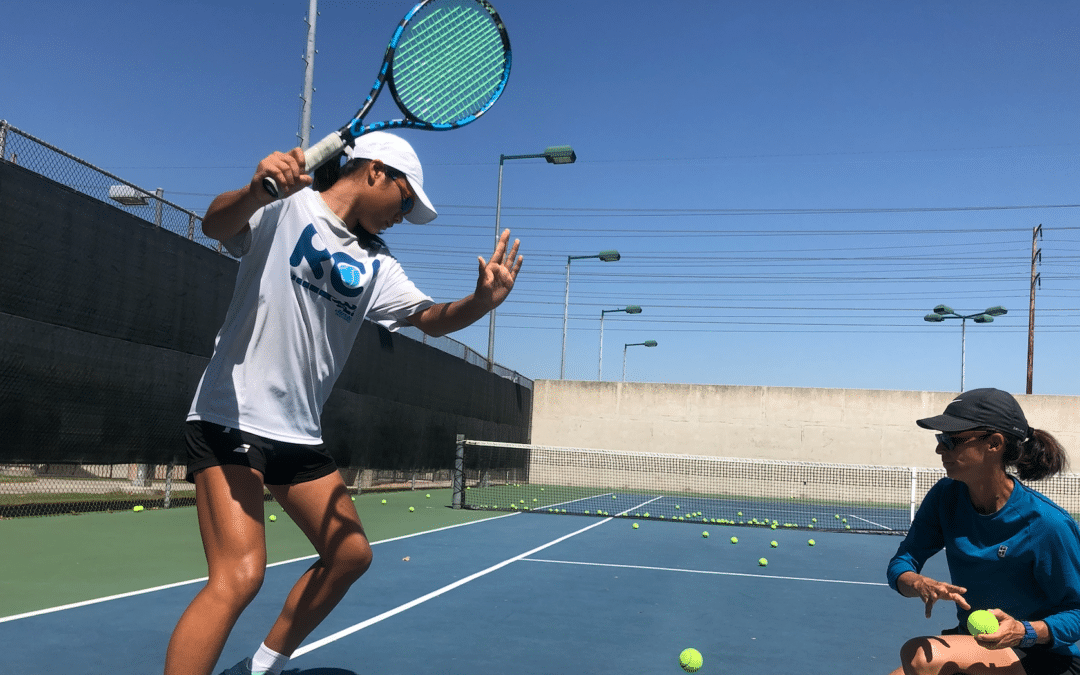Femininity by definition is: The quality or nature of the female sex (Merriam-Webster). Coaches who work with enough female players will inevitably run into an issue that can plague many careers, the fear of gaining too much muscle and getting ‘too big’. As women’s tennis evolves towards a more physically demanding and athletic sport, many players are becoming conflicted when it comes to gaining strength. For many, increasing muscle mass comes with a price, it does not fit into what is deemed appropriate by society’s view of a feminine woman.
Coaches can play a major role in creating a positive culture when it comes to body image without even mentioning size or shape. Celebrate positive role models by identifying the physical attributes of players that students admire. Simona Halep’s exceptional footwork and movement skills, Karolina Pliskova’s powerful serve, Petra Kvitova’s incredibly fast rotation that creates heavy groundstrokes, or Sloane Stephens ability to run down every ball then crush a winner from anywhere in the court. It’s stating the blaringly obvious but who actually cares which outfits any of these players are wearing and talking about that does nothing to empower your athletes.
Throughout history, feminine women have not been looked at as combative, merciless, and triumphant. Players with killer instinct or the desire to win by crushing or dominating their opponent are rarely said to be ‘ladylike’. Femininity often is about appearing beautiful and vulnerable and small (Nelson 1998, p. 145).
With a sound understanding of the social pressures females face, coaches will be better prepared when working with female athletes. Female players feel pressure to look, act, even talk a certain way, particularly the way they portray themselves through social media channels. Many WTA pros are reluctant to share on-court content or fitness training videos, feeling they have to depict a certain “feminine image” in order to gain lucrative sponsorship deals. Thankfully over recent years, there has been a significant shift in perception. Athletic images being revered and strong female athletes being idolized.
Be part of the change. Supportive coaches will encourage their female players to always remain true to themselves despite what’s forced upon them by social implications. Play your part and together we can make a difference.
Reference: Cleere, M. Stone, S. Alabaster, C. Pennell, P. (2015) Module A The female athlete, WTCA Baseline Certification

